EVent Coordinator
Employer Identification Number (EIN): Who Needs It and How to Get It
What Is an Employer Identification Number (EIN)?
The term employer identification number (EIN) refers to a unique identifier that is assigned to a business entity so that it can easily be identified by the Internal Revenue Service (IRS). EINs are commonly used by employers for the purpose of reporting taxes. The number is made up of nine digits and is formatted as XX-XXXXXXX. Businesses can apply for EINs directly through the IRS, which usually issues them immediately.
KEY TAKEAWAYS
- An employer identification number is a unique nine-digit number that is assigned to a business entity.
- EINs allow the IRS to easily identify businesses for tax reporting purposes.
- All businesses that meet certain criteria must have an EIN before they can begin operating.
- Applying for one is free and applications are available on the IRS website.1
- Along with tax reporting, EINs allow businesses to open bank accounts and apply for credit.
Understanding the Employer Identification Number (EIN)
Employer identification numbers are issued to identify business entities in the United States the same way Social Security Numbers (SSNs) are used to identify individual residents of the country.1 The EIN is also known as a Federal Tax Identification Number.
As noted above, EINs are unique nine-digit numbers that are formatted as XX-XXXXXXX. EINs are issued by the IRS and include information about the state in which the corporation is registered. The agency uses EINs to identify taxpayers who are required to file various business tax returns.2
You need an EIN if you have employees, operate as a corporation or partnership, file certain tax returns, or withhold taxes from income other than wages.3 Business entities must apply for an EIN by phone, online, fax, or mail before they can begin operations.1 All forms of businesses can apply for and be issued EINs, including:
- Limited liability companies (LLCs)
- Sole proprietorships
- Non-profit organizations (NPOs)
- Government agencies
- S corporations
- Partnerships
- Estates
- Trusts
The IRS is not biased toward the size of the company. This means even those with only one employee are just as eligible for an EIN as multinational corporations.
The EIN is not considered to be sensitive information the same way a Social Security number is and is freely distributed by businesses online and in print publications.
Do I Need an Employee Identification Number?
The IRS requires certain companies to obtain an EIN as part of reporting requirements. A company must file for and receive an EIN if the company:
- Has any employees
- Operates as a corporation or a partnership
- Files employment, excise, or alcohol, tobacco, and firearms tax returns
- Withhold taxes on income paid to non-resident aliens
- Have a Keogh plan
- Are involved with a number of types of organizations including but not limited to trusts, estates, or non-profits.
How to Get an Employer Identification Number
Applying for an EIN costs nothing. Applications can be made by phone (for those who aren’t in the United States but will do business in the country), fax, mail, or online. The process is fairly easy and uncomplicated.6
Applicants must fill out Form SS-4: Application for Employer Identification Number, which is available on the IRS website.7 The IRS requires the following information to be included on the application in order to issue an EIN, such as the name of the company’s principal officer, partner, trustor, owner, or any other title, along with their personal taxpayer identification number.6
Some of the information that must be included on the form includes:
- The type of entity
- The reasons for applying (new business, change of organization, IRS withholding requirement compliance)
- The start or acquisition date
- The principal industry of business4
A business must be located in the U.S. or U.S. territories to apply for an EIN online. Once the online information is validated, an EIN is assigned immediately.
The person responsible for the business, regardless of their title within the company, must be an individual and not an entity.
Benefits of an Employer Identification Number
EINs are unique to the businesses to which they are assigned. The numbers never expire, and the same number set is never reissued to another business, even if the original employer goes out of business.9
The main advantage of getting one is being able to operate. You can’t run your business without it. You must apply for an employer identification number before you even get started. You also need an EIN to do the following:
- Hiring and paying employees
- Opening bank accounts, obtaining credit, and investing surplus cash
- Maintaining corporate shields
- Filing business taxes and registering state taxes
Getting an EIN allows you to keep your personal finances separate from your business ones. This allows you to shield your personal information and keep it protected from identity theft.
Self-employed individuals such as subcontractors are typically required to have an EIN, which will be used by the primary contractor to report to the IRS all business income paid to the subcontractor.
Businesses that change their ownership structure usually must apply for a new EIN.5 For example, sole proprietors who plan to incorporate their businesses must apply for a new EIN.
Closing Your Employee Identification Number
Once you are assigned an EIN, that identification number will forever be associated with you and your company. That EIN becomes permanently associated with that entity, and the IRS can technically never cancel an EIN.
An EIN is a critical part in required financial reporting. Even if an entity never files any return, the EIN is still associated with it. Once an EIN is issued, the identification number can be used at a later day if the entity needs.
If you do receive an identification number but later decide the number was never needed, the IRS can close your associated business account. This is often the case for startup companies that never actually launch. A physical letter must be mailed indicating the legal name, business address, EIN number, and reason for the account closure. The EIN will remain; only the IRS business account will be suspended.
Employee Identification Number vs. Taxpayer Identification Number (TIN)
A Tax Identification Number (TIN) is a broad term used to describe any type of identification number. An EIN is a specific type of TIN. A TIN is a generic descriptor for an assortment of numbers that can be used on a tax form including but not limited to:
- EIN
- SSN
- ITIN (Individual Taxpayer Identification Number)
- ATIN (Adoption Taxpayer Identification Number)
- PTIN (Preparer Taxpayer Identification Number)
Depending on the nature of the particular taxpayer, the EIN may or may not be the TIN used by the IRS. For sole proprietors, the TIN is often their Social Security number. For corporations, partnerships, trusts, and estates, their TIN is often an EIN.
What Happens If You Lose or Misplace Your EIN?
If you misplace your EIN, look for it on the notice sent to you by the IRS when your EIN was issued You can also try to recover it by contacting the financial institution where you do your day-to-day banking. You can also find it on your previous tax returns. If all else fails, contact the IRS’ Business & Specialty Tax Line at 1-800-829-4933. Make sure you have any identifying information on hand before you speak to an operator.
Does My Business Need an EIN?
Every business entity needs an employer identification number, including those that have employees, operate as corporations or partnerships, file certain tax returns (Employment, Excise, or Alcohol, Tobacco, and Firearms), and withhold income taxes on income other than wages.
How Do I Find an Employer Identification Number?
You can find an employer identification number using a tax return, applications for bank accounts or credit, on any state licenses or permits, or on forms used to report work done as an independent contractor or payments made by your business.
How Long Will It Take to Get an EIN?
When applying online, you can get an EIN immediately. An EIN application can be faxed to the IRS, though this mode of application may take up to two weeks. The IRS also accepts paper mail applications, though it quotes an expected turnaround time of four to five weeks.11
The Bottom Line
An employer identification number (EIN) is a unique nine-digit number that is assigned to a business entity. Every business needs an employer identification number to report taxes. To request an EIN, applicants must fill out Form SS-4, available on the IRS website. The EIN must not be confused with the tax identification number (TIN) which is a broader term used to describe any type of identification number. Thus, an EIN is a specific type of TIN.


